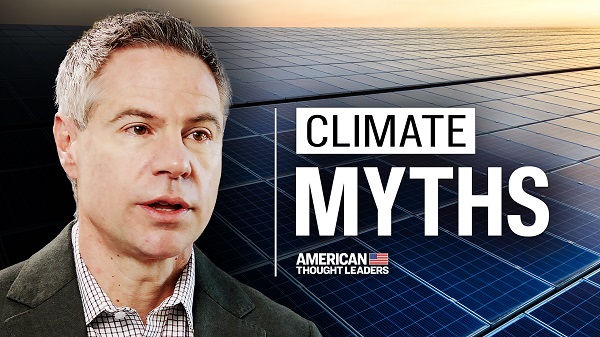Uncategorized
Trump, Pelosi feud heats up again

WASHINGTON — She imperiled his State of the Union address. He denied her a plane to visit troops abroad.
The shutdown battle between President Donald Trump and House Speaker Nancy Pelosi is playing out as a surreal game of
In dramatic fashion, Trump issued a letter to Pelosi on Thursday, just before she and other lawmakers were set to depart on the previously undisclosed trip to Afghanistan and Brussels. Trump belittled the trip as a “public relations event” — even though he had just made a similar warzone stop — and said it would be best if Pelosi remained in Washington to negotiate to reopen the government.
“Obviously, if you would like to make your journey by flying commercial, that would certainly be your prerogative,” wrote Trump, who had been smarting since Pelosi, the day before, called on him to postpone his Jan. 29 State of the Union address due to the shutdown.
Denying military aircraft to a senior lawmaker — let alone the speaker, who is second in line to the White House,
The political tit-for-tat between Trump and Pelosi laid bare how the government-wide crisis has devolved into an intensely pointed clash between two leaders determined to prevail. It took place as hundreds of thousands of federal workers go without pay and Washington’s routine protocols — a president’s speech to Congress, a lawmaker’s official trip — became collateral damage.
Pelosi spokesman Drew Hammill said the speaker planned to travel to Afghanistan and Brussels to thank service members and obtain briefings on national security and intelligence “from those on the front lines.” He noted Trump had
Trump’s move was the latest example of his extraordinary willingness to tether U.S. government resources to his political needs. He has publicly urged the Justice Department to investigate political opponents and threatened to cut disaster aid to Puerto Rico amid a spat with the island territory’s leaders.
Some Republicans expressed frustration. Sen. Lindsey Graham tweeted, “One sophomoric response does not deserve another.” He called Pelosi’s State of the Union move “very irresponsible and blatantly political” but said Trump’s reaction was “also inappropriate.”
While there were few signs of progress Thursday,
For security reasons, Pelosi would normally make such a trip on a military aircraft supplied by the Pentagon. According to a
The official said the president does have the authority to cancel the use of military aircraft.
Rep. Adam Schiff of California slammed Trump for revealing the closely held travel plans.
“I think the president’s decision to disclose a trip the speaker’s making to a war zone was completely and utterly irresponsible in every way,” Schiff said.
Trump’s trip to Iraq after Christmas was not disclosed in advance for security reasons.
White House spokeswoman Sarah Huckabee Sanders said Trump wanted Pelosi to stay in Washington before Tuesday, a deadline to prepare the next round of paychecks for federal workers.
“We want to keep her in Washington,” Sanders said. “The president wants her here to negotiate.”
The White House also
Trump was taken by surprise by Pelosi’s move to postpone his address and told one adviser it was the sort of disruptive move he would make himself, according to a Republican who is in frequent contact with the White House and was not authorized to speak publicly about private conversations.
While he maintained a public silence, Trump grew weary of how Pelosi’s move was being received on cable TV and reiterated fears that he was being
Trump has still not said how he will handle Pelosi’s attempt to have him postpone his State of the Union address until the government is reopened so workers can be paid for providing security for the grand Washington tradition.
Pelosi told reporters earlier Thursday: “Let’s get a date when government is open. Let’s pay the employees. Maybe he thinks it’s OK not to pay people who do work. I don’t.”
Trump declined to address the stalemate over the speech during a visit Thursday to the Pentagon, simply promising that the nation will have “powerful, strong border security.”
Pelosi reiterated she is willing to negotiate money for border security once the government is reopened, but she said Democrats remain opposed to Trump’s long-promised wall.
“I’m not for a wall,” Pelosi said twice, mouthing the statement a third time for effect.
The shutdown, the longest ever, entered its 28th day on Friday. The previous longest was 21 days in 1995-96, under President Bill Clinton.
In a notice to staff, the State Department said it can pay most of its employees beginning Sunday or Monday for their next pay period. They will not be paid for time worked since the shutdown began until the situation is resolved, said the notice.
The new White House travel ban did not extend to the first family.
About two hours after Trump grounded Pelosi and her delegation, an Air Force-modified Boeing 757 took off from Joint Base Andrews outside Washington with the call sign “Executive One Foxtrot,” reserved for the first family when the president is not
A White House spokesperson did not answer questions about the flight.
___
For AP’s complete coverage of the U.S. government shutdown: https://apnews.com/GovernmentShutdown
___
Associated Press writers Jon Lemire, Matthew Daly, Mary Clare Jalonick and Lolita C. Baldor contributed to this report.
Catherine Lucey, Matthew Lee, Zeke Miller And Lisa Mascaro, The Associated Press
Uncategorized
Trump Admin Establishing Council To Make Buildings Beautiful Again


From the Daily Caller News Foundation
By Jason Hopkins
The Trump administration is creating a first-of-its-kind task force aimed at ushering in a new “Golden Age” of beautiful infrastructure across the U.S.
The Department of Transportation (DOT) will announce the establishment of the Beautifying Transportation Infrastructure Council (BTIC) on Thursday, the Daily Caller News Foundation exclusively learned. The BTIC seeks to advise Transportation Secretary Sean Duffy on design and policy ideas for key infrastructure projects, including highways, bridges and transit hubs.
“What happened to our country’s proud tradition of building great, big, beautiful things?” Duffy said in a statement shared with the DCNF. “It’s time the design for America’s latest infrastructure projects reflects our nation’s strength, pride, and promise.”
“We’re engaging the best and brightest minds in architectural design and engineering to make beautiful structures that move you and bring about a new Golden Age of Transportation,” Duffy continued.
Mini scoop – here is the DOT’s rollout of its Beautifying Transportation Infrastructure Council, which will be tasked with making our buildings beautiful again. pic.twitter.com/
9iV2xSxdJM — Jason Hopkins (@jasonhopkinsdc) October 23, 2025
The DOT is encouraging nominations of the country’s best architects, urban planners, artists and others to serve on the council, according to the department. While ensuring that efficiency and safety remain a top priority, the BTIC will provide guidance on projects that “enhance” public areas and develop aesthetic performance metrics.
The new council aligns with an executive order signed by President Donald Trump in August 2025 regarding infrastructure. The “Making Federal Architecture Beautiful Again” order calls for federal public buildings in the country to “respect regional architectural heritage” and aims to prevent federal construction projects from using modernist and brutalist architecture styles, instead returning to a classical style.
“The Founders, in line with great societies before them, attached great importance to Federal civic architecture,” Trump’s order stated. “They wanted America’s public buildings to inspire the American people and encourage civic virtue.”
“President George Washington and Secretary of State Thomas Jefferson consciously modeled the most important buildings in Washington, D.C., on the classical architecture of ancient Athens and Rome,” the order continued. “Because of their proven ability to meet these requirements, classical and traditional architecture are preferred modes of architectural design.”
The DOT invested millions in major infrastructure projects since Trump’s return to the White House. Duffy announced in August a $43 million transformation initiative of the New York Penn Station in New York City and in September unveiledmajor progress in the rehabilitation and modernization of Washington Union Station in Washington, D.C.
The BTIC will comprise up to 11 members who will serve two-year terms, with the chance to be reappointed, according to the DOT. The task force will meet biannually. The deadline for nominations will end Nov. 21.
Uncategorized
New report warns WHO health rules erode Canada’s democracy and Charter rights

The Justice Centre for Constitutional Freedoms has released a new report titled Canada’s Surrender of Sovereignty: New WHO health regulations undermine Canadian democracy and Charter freedoms. Authored by Nigel Hannaford, a veteran journalist and researcher, the report warns that Canada’s acceptance of the World Health Organization’s (WHO) revised International Health Regulations (IHR) represents a serious erosion of national independence and democratic accountability.
The IHR amendments, which took effect on September 19, 2025, authorize the WHO Director-General to declare global “health emergencies” that could require Canada to follow directives from bureaucrats in Geneva, bypassing the House of Commons and the will of Canadian voters.
The WHO regards these regulations as “binding,” despite having no ability or legal authority to impose such regulations. Even so, Canada is opting to accept the regulations as binding.
By accepting the WHO’s revised IHR, the report explains, Canada has relinquished its own control over future health crises and instead has agreed to let the WHO determine when a “pandemic emergency” exists and what Canada must do to respond to it, after which Canada must report back to the WHO.
In fact, under these International Health Regulations, the WHO could demand countries like Canada impose stringent freedom-violating health policies, such as lockdowns, vaccine mandates, or travel restrictions without debate, evidence review, or public accountability, the report explains.
Once the WHO declares a “Pandemic Emergency,” member states are obligated to implement such emergency measures “without delay” for a minimum of three months.
Importantly, following these WHO directives would undermine government accountability as politicians may hide behind international “commitments” to justify their actions as “simply following international rules,” the report warns.
Canada should instead withdraw from the revised IHR, following the example of countries like Germany, Austria, Italy, Czech Republic, and the United States. The report recommends continued international cooperation without surrendering control over domestic health policies.
Constitutional lawyer Allison Pejovic said, “[b]y treating WHO edicts as binding, the federal government has effectively placed Canadian sovereignty on loan to an unelected international body.”
“Such directives, if enforced, would likely violate Canadians’ Charter rights and freedoms,” she added.
Mr. Hannaford agreed, saying, “Canada’s health policies must be made in Canada. No free and democratic nation should outsource its emergency powers to unelected bureaucrats in Geneva.”
The Justice Centre urges Canadians to contact their Members of Parliament and demand they support withdrawing from the revised IHR to restore Canadian sovereignty and reject blind compliance with WHO directives.
-

 Business2 days ago
Business2 days agoLiberals refuse to disclose the amount of taxpayer dollars headed to LGBT projects in foreign countries
-

 Daily Caller1 day ago
Daily Caller1 day agoUS Nuclear Bomber Fleet Shares Fence With Trailer Park Linked To Chinese Intel-Tied Fraudster
-

 Digital ID2 days ago
Digital ID2 days agoCanada moves forward with digital identification for federal benefits seekers
-

 Alberta2 days ago
Alberta2 days agoSchool defunding petition in Alberta is a warning to parents
-

 espionage1 day ago
espionage1 day agoChinese-Owned Trailer Park Beside U.S. Stealth Bomber Base Linked to Alleged Vancouver Repression Case
-

 Daily Caller1 day ago
Daily Caller1 day agoLaura Ingraham Presses Trump On Allowing Flood Of Chinese Students Into US
-

 COVID-191 day ago
COVID-191 day agoSpy Agencies Cozied Up To Wuhan Virologist Before Lying About Pandemic
-

 Environment1 day ago
Environment1 day agoThe Myths We’re Told About Climate Change | Michael Shellenberger









